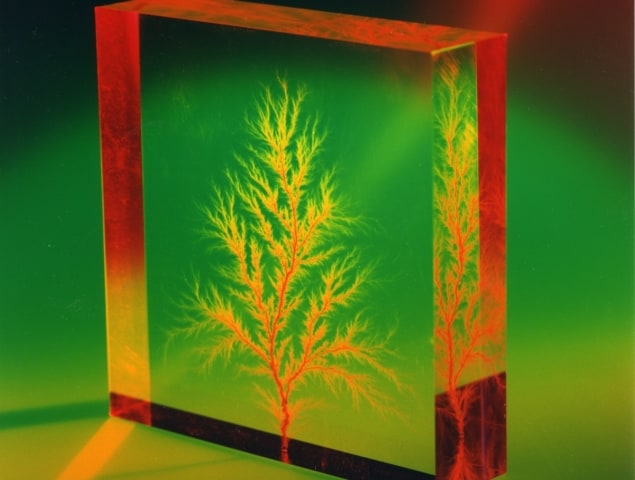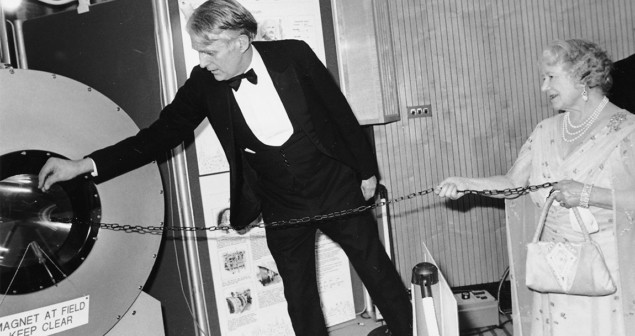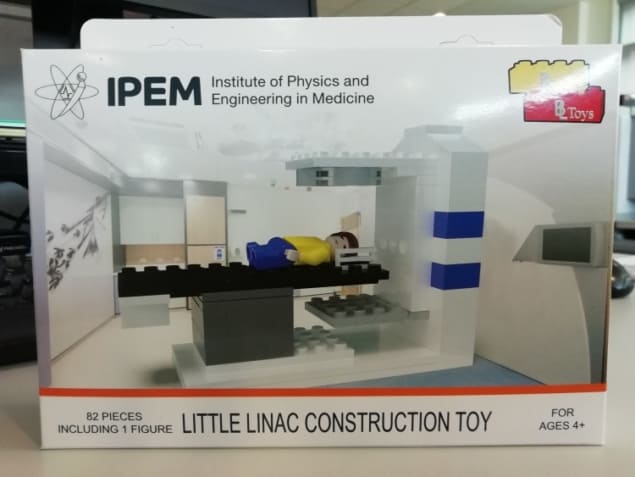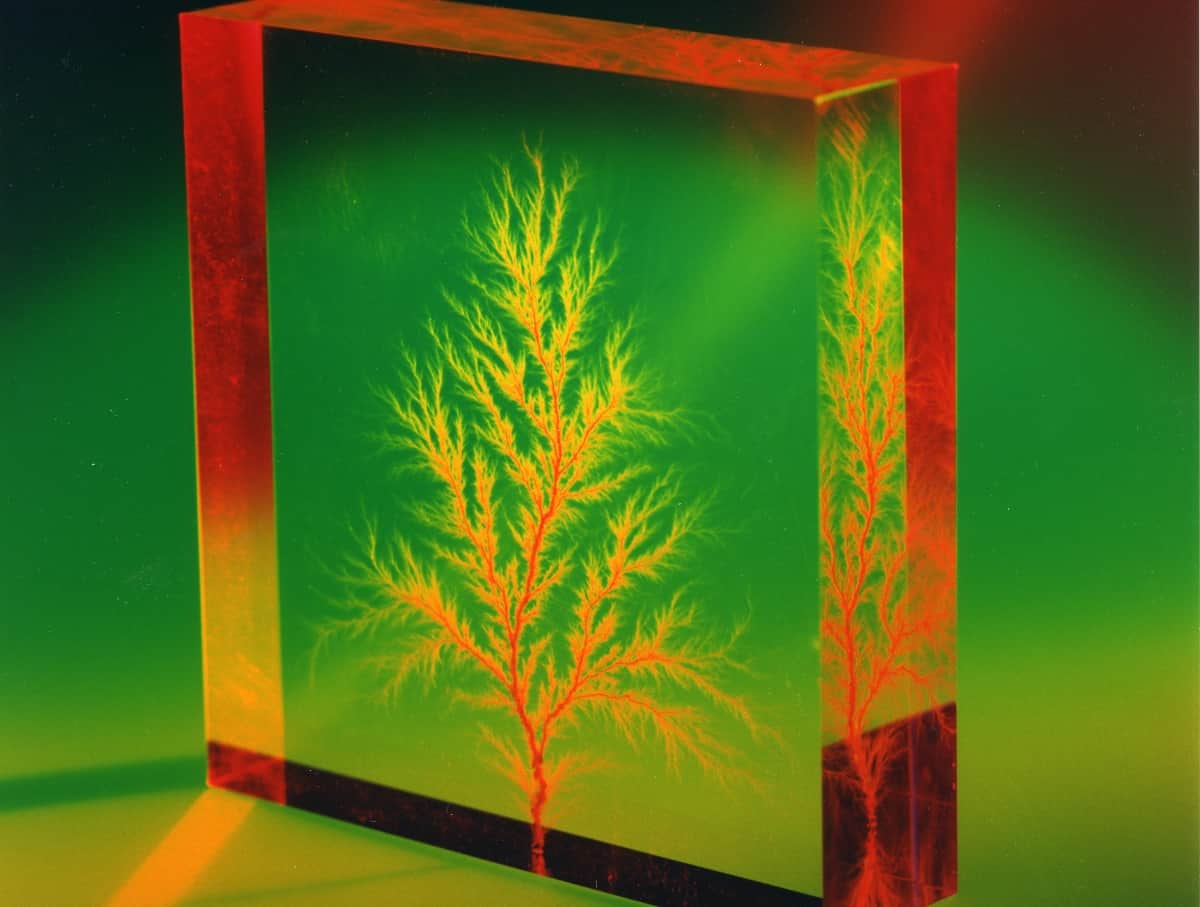
1. The image above shows an electron tree. But which piece of medical physics equipment was used to create this striking pattern?
A. An MRI scanner B. A linear accelerator C. An infrared laser D. An X-ray CT system
2. Marie Curie’s laboratory notebooks are so radioactive that they must be stored in lead-lined boxes. But where are these boxes now?
A. The Musée Curie in Paris B. The University of Paris C. The Maria Sklodowska-Curie National Research Institute of Oncology in Warsaw D. The Bibliothèque Nationale de France
3. Which of the following is used as an informal measurement of ionizing radiation exposure?
A. Coconut equivalent exposure B. Mango unit dose C. Banana equivalent dose D. Grapefruit level exposure

4. How did Queen Elizabeth the Queen Mother describe her experience of pulling on an iron chain hung near an Oxford Instruments MRI magnet?
A. Like taking the corgis for a walk B. Like launching a ocean liner C. Like ringing a dinner bell D. Like steering a horse-drawn carriage
5. Nobel laureate and MRI pioneer Peter Mansfield was told at the age of 15 that science was not for him. He then left school to work as:
A. A printer’s assistant B. An apprentice plumber C. A hospital porter D. A miner
6. Bats use ultrasound to navigate and forage in the dark, a technique called echolocation. Many other animals also navigate using sound waves, but which of the following does NOT?
A. Killer whale B. Hyena C. Shrew D. Porpoise
7. Wilhelm Röntgen created the first X-ray image of a human body part. What did the image show?
A. Röntgen’s hand B. His wife’s hand C. A knee joint D. Röntgen’s foot

8. IPEM’s Little Linac contains all the bricks needed to create a model linear accelerator. Which of these other machines can be created by the kit?
A. MRI scanner B. Gamma camera C. CT scanner D. All of these
9. Which technique is sometimes referred to as “radiology done inside out”?
A. Nanomedicine B. Immunotherapy C. Nuclear medicine D. Optical coherence tomography
10. An LED technology developed by NASA for plant growth experiments in space has also proved successful for what medical application?
A. Imaging cardiac and lung diseases B. Patient alignment during complex brain surgeries C. Wound healing and reducing painful side effects of chemotherapy and radiotherapy D. Helping to design and create personalized prosthetic limbs
Stuck on the questions? We’ll reveal the answers next week on Friday 7 August.
Sponsored by Elekta. For almost five decades, Elekta has been a leader in precision radiation medicine. Their more than 4000 employees worldwide are committed to ensuring everyone in the world with cancer has access to – and benefits from – more precise, personalized radiotherapy treatments. Learn more at Elekta.com.
